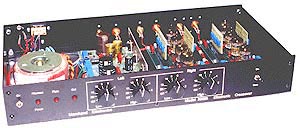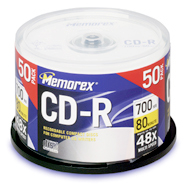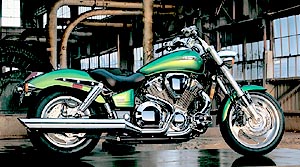 |
|||||||||||||||||||||
|
Back to your thoughts on active speakers, Jerry.
|
|||||||||||||||||||||
|
Audiophiles are extraordinarily fond of spending obscene amounts of money on one lone amplifier, to drive their passive speakers with. I'm here to tell you that, for a lot less money, you could acquire three different, apparently lower-performance amplifiers and, with an active network, obtain much superior results. By properly selecting the operating mode of the amplifier for each band and having control over the slope, Q and knee of the entry- and exit frequencies, as well as overall output for that band, you can fine-tune the speakers to the room. That's the only way, really.
|
|||||||||||||||||||||
|
Access to higher-order variables of course also means greater chances for screwing things up.
|
|||||||||||||||||||||
| True. The real work involved in setting up a system like the Grand Illusion isn't the hardware. It's adjusting it that takes weeks, months even. I can't begin to explain the intricacies of determining the precise location of each driver, the minute amounts of toe-in to focus the radiation patterns, the subsequent response tailoring with the active filter circuits. Everything makes a difference - the lengths and type of cables, EMI/RFI filtering, physical resonance damping... |
|||||||||||||||||||||
 |
|||||||||||||||||||||
|
Superior results demand superior attention to detail. When we design and install one-up versions of the
PA-1 system for customers, they're assured of as many return visits as it takes until they happily sign off that the results match their particular needs and requirements. I've had most of the core components making up my personal speaker array for years, first in a different room in my last house. Transplanting it into a new space while expecting instant bliss? Complete folly. The room is the greatest variable, which is why we include it in the equation and in fact design the system around it - or better yet, design the room first. But that's up to the customer and his or her budget. We can use existing spaces or develop a new one from scratch. Cost for the former? Since it's totally custom, there's no fixed formula. Still, if someone came to me with at least $50,000, I know I could do something truly remarkable. |
|||||||||||||||||||||
| The most impressive aspect of the Grand Illusion concept is really how a space of very modest dimensions can be optimized for truly staggering results. |
|||||||||||||||||||||
| I feel the same. It's easy to assume that mansion-sized rooms will sound good. In many cases, they will. Making them work is relatively straight-forward, too. The far greater challenge and more universally applicable rewards arise from using standard-sized spaces and transforming them into no-holds-barred sound environments. Many folks, when their kids move out, have spare bedrooms that don't really serve much of a purpose except as the occasional guest room. The PA-1 approach is perfectly adaptable to make use of such unused rooms, to get music lovers into a special sound sanctuary without waiting for the dream house or that special zone above the garage. |
|||||||||||||||||||||
| The other appealing aspect about this concept is the dual-purpose benefit for Home Theater and music. With the PA-1 and as you demonstrated, you really don't need rear speakers to enjoy movies. As a bonus, the in-wall location of the drivers retains precious floor space. Obviously, how closely you'd duplicate the exact hardware assortment of your personal system in a customer's space is, among other factors, determined by budget and listening bias. Still, would you want to retain these Hartley woofers? |
|||||||||||||||||||||
Absolutely. They are the fastest woofers I've ever tried, with the best transient response. That becomes of vital concern when you're mating a bass system to planar mids and planar/ribbon highs like the Eminent Tech units and R2 by Orca. How many woofers I'd use, in what size and configuration, naturally depends on the application. |
|||||||||||||||||||||
 |
|||||||||||||||||||||
 |
|||||||||||||||||||||
| Seeing that you use both vinyl and digital in no-compromise setups, what are your personal feelings on the volatile discussion of vinyl's remaining superiority? Is analogue still better? Or does digital, while perhaps not sounding the same, finally sound just as good? |
|||||||||||||||||||||
| First off, by now I despise vinyl's inherent inconveniences. I didn't use to, in the olden days. But with digital's remote track access and programming facilities, I've come to view vinyl's usage requirements as serious impediments to its enjoyment. Say I wanted to listen to cut 3, 1 and 7 of a record, in that sequence. Without feeling like a table waiter serving a haughty client with a bad attitude, I can't do it. I'll be walking between table and listening chair more than I do actual listening. And flipping sides on an LP isn't exactly as fast as flipping a burger in a pan, you know? And those pops, clicks and other surface noise? I really don't need 'em. What I do instead? Burn a mint record to CDR - black ones as they sound distinctly better. And guess what? With my CEC belt-driven transport feeding our Kukama DAC with my non-stock integral custom linestage circuit, I actually prefer the sound of the digitized LP to the original. |
|||||||||||||||||||||
| Bless you for admitting to such heretical notions, Jerry. Diehard vinylists might want to lynch you for that statement, especially seeing that your CD burner is a lowly Sony twin-deck. Remarkable too that you find these black Memorex CDRs to sound better than green or gold ones. After I e-mailed him that my local Walmart as the only source for walk-in blank media had limited me to their green 80-minute Maxell house brand by default, Kevin Teixeira -- one of my readers -- recently sent me one of these very Memorex blanks to try out. This test is due for next week. If I go black, I'll briefly report on it in our audio review pages. Do you have any theories why you would prefer digitized vinyl to its analogue counterpart, Jerry? |
|||||||||||||||||||||
 |
|||||||||||||||||||||
| Not really. It's just what my ears tell me. Practically speaking, digital has its own advantages - lower noise floor and thus greater dynamic range. Recording a good LP to disc seems to create a kind of hybrid that combines the best sonic attributes of analogue and digital. To be honest, while I have a solid electrical background, I'm not a benchtest freak. What matters in the end is how something performs to these ears, even if I don't fully understand why or how. That's been my credo throughout my time in audio - to apply my talents and creativity by trusting my ears and not getting bogged down by certain engineering concepts that predict certain results and deny others as impossible. |
|||||||||||||||||||||
| Like "silver is bright"? |
|||||||||||||||||||||
| Certainly. Silver can behave with a certain treble emphasis but it doesn't have to. It all depends what you do to it, how you work it, where it's from. If we could just get audiophiles to remember that there isn't a one-size-fits-all formula; secondly, to trust their own ears; and lastly, to have fun... the whole audiophile scene would have a very different flavor. |
|||||||||||||||||||||
| That's my cue to bow out and pack up, Jerry. Thanks for taking the time and letting me listen to your system again. It's been awhile but I think it sounds smoother and even more coherent from top-to-bottom. The totally counter-intuitve aspect --after staring at this huge vertical array, with the free-standing ribbon tweeters on the far left and right and those JBL compression tweeters in the very corners like extreme spot lights -- is the extreme precision and focus whereby the system tracks performance placement and movement across the stage. Even the depth perspective is very impressive, limited only in certain orchestral sweeps where free-standing systems enjoy a layering advantage. But rarely have I heard this combination of bass quality and quantity where the room truly disappears to no longer interfere - and never in a room this size. Now you better hope I don't come home and think my own setup sounds like shit by comparison. If I do, you'll have something very smelly coming in the mail, señor. |
|||||||||||||||||||||
Really? [Cracks up.] No more keys to my motorcycle then, buddy. |
|||||||||||||||||||||
Which would be a shame, I admit. Your Valkyrie was great, but this 1,800cc V-twin VTX is something else altogether. What a rumble. Okay, no stink bombs in the mail. But I still hope my own setup won't let me down now. And anyway, who'd ever know until I said so, right? Mum's the word then. |
|||||||||||||||||||||
 |
|||||||||||||||||||||
 |
|||||||||||||||||||||
 |
|||||||||||||||||||||
| Audio Magic website | |||||||||||||||||||||
 |
|||||||||||||||||||||